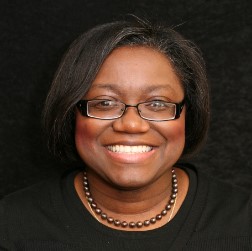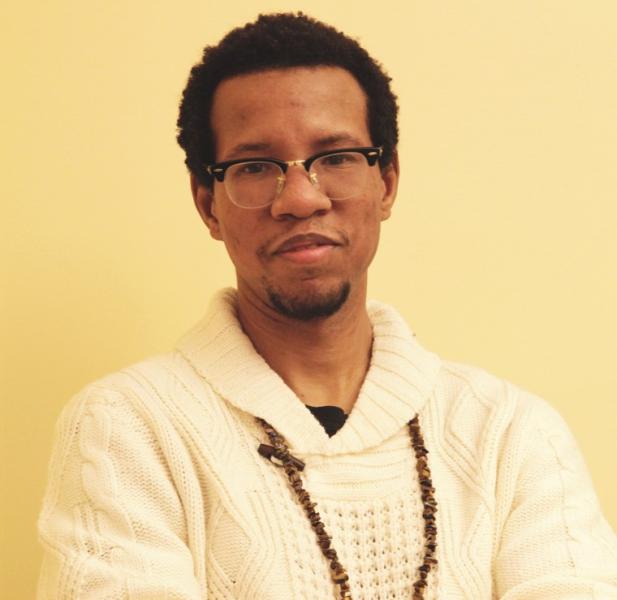
Equity Research Action Coalition welcomes new staff
For more than five decades, the Frank Porter Graham Child Development Institute’s (FPG) research, evaluation, implementation, and technical assistance have shaped how the nation cares for and educates children. We recognize that every child deserves a safe, healthy, and stimulating childhood; and our work has been—and continues to be—dedicated to making this experience a reality as we strive to build equitable service systems that meet the needs of all children and families, especially those who are most vulnerable and historically underserved. This mission can be seen clearly in a new program at FPG.
“There’s an urgent need for a collaborative of experts who will use strengths-based data to shed light on the impact of historical and contemporary racism and inequities, and the differential impacts of programs, practices, and policies on Black children's and other minoritized children's health, well-being, and educational outcomes,” says FPG’s Iheoma Iruka, PhD.
Iruka aims to address this need through the newly established Equity Research Action Coalition here at FPG. As the coalition’s founder, Iruka has been busy building a team of experts to join her in her work, including a managing director and a data scientist.
 “The managing director for the Equity Research Action Coalition is a key role—this person will help guide the Coalition’s strategy, direction, and growth for years to come,” says Iruka. “Not only does Sharron Hunter-Rainey, PhD (pictured left), bring a wealth of experience that spans arenas from the corporate world to academia, her deep knowledge of history, student engagement, and experiential learning in the area of African diasporic issues are of critical importance to the Coalition.”
“The managing director for the Equity Research Action Coalition is a key role—this person will help guide the Coalition’s strategy, direction, and growth for years to come,” says Iruka. “Not only does Sharron Hunter-Rainey, PhD (pictured left), bring a wealth of experience that spans arenas from the corporate world to academia, her deep knowledge of history, student engagement, and experiential learning in the area of African diasporic issues are of critical importance to the Coalition.”
As managing director of the Coalition, Hunter-Rainey envisions her role as supporting Iruka’s research agenda to “weave together a tapestry of projects” that change the lives of Black children nationally.
Early in her career, Hunter-Rainey started as a diversity practitioner to help Procter & Gamble retain and recruit diverse talent. That experience sparked an interest in understanding the reasons for different incomes among Black and white households. As a doctoral student at Duke University, she used social capital and social networks to explain observed differences. Hunter-Rainey’s dissertation research showed that in addition to who you know (social capital), how many connections (social networks) you have can affect outcomes.
Hunter-Rainey describes herself as a creative problem solver who combines academic training and lived experiences to match resources to the people who need them. “I routinely apply bridging social capital, in daily life, to connect people as needed,” says Hunter-Rainey. “My role with the Coalition gives me an opportunity to leverage these experiences and skills to help improve the lives of Black children without regard for whether they live in urban, suburban, or rural areas of this country.”
 When looking for a data scientist, Iruka wanted someone who could bring a lens that intersects data science and racial equity, a critical skill instrumental in meeting the overall goal of the Coalition to provide actionable data to address racism and systemic inequities. “Milton Suggs (pictured right) is a talented data scientist who is deeply committed to addressing intractable social problems,” says Iruka. “His passion, perspective, and skillset will, without a doubt, greatly benefit the Coalition and our work.”
When looking for a data scientist, Iruka wanted someone who could bring a lens that intersects data science and racial equity, a critical skill instrumental in meeting the overall goal of the Coalition to provide actionable data to address racism and systemic inequities. “Milton Suggs (pictured right) is a talented data scientist who is deeply committed to addressing intractable social problems,” says Iruka. “His passion, perspective, and skillset will, without a doubt, greatly benefit the Coalition and our work.”
Suggs, who is transitioning from a career in music education, sees parallels between the programming aspect of data science and music composition and education. In each field there exists a need for both an analytical and creative mindset.
“The work of FPG being child- and family-centered aligns well with my experiences as an educator. I have a vested interest in the success of Black children academically, socially, and in the other areas of life,” says Suggs. “My work as a data scientist with FPG and the Coalition will allow me to continue to work toward that goal in a different, but equally fulfilling capacity.”
In his role at the Coalition, Suggs is looking forward to leveraging insights gained through data and research to aid in finding solutions to issues of equity and justice and improving these systems.
“Through data analysis, the Coalition will be well positioned to identify opportunities for improvement and develop plans for action,” says Suggs. “I view my work as a small contribution to the vast continuum of work that has been long established by educators, researchers, scientists, and activists throughout the history of North Carolina and the United States as a whole.”
To learn more about the Equity Research Action Coalition, visit the Coalition's program landing page.